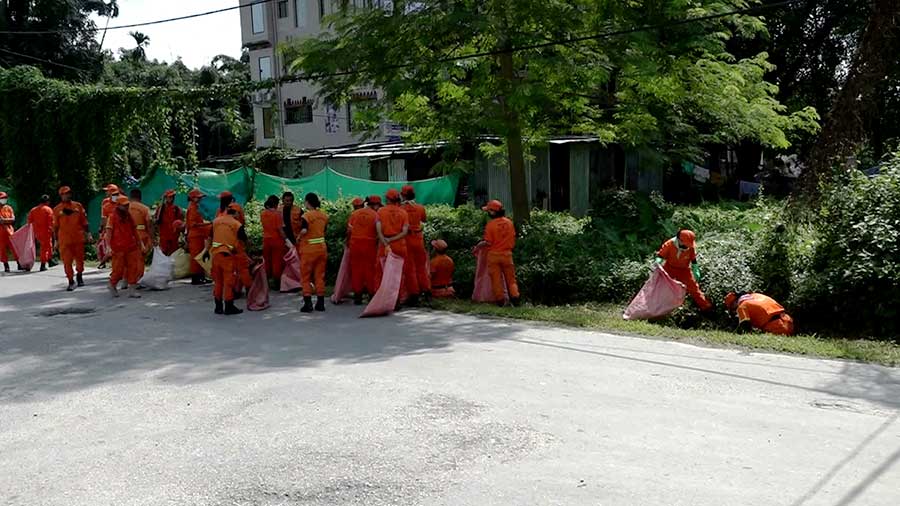
Like any other town in the country, waste is a familiar issue in Gelephu Thromde as well. So, to sensitise that waste management is important, thromde officials and DeSuups have carried out a cleaning campaign in the town recently.
Hopefully, this manages to instil social values among the residents and help the country in achieving the national goal of Zero Waste Society by 2030.
DeSuups and thromde officials have carried out a cleaning campaign for 10 straight days in Gelephu Thromde more than two weeks ago. They cleared the open filths, streets and sideways in and around the thromde.
They also scoured the clogged drains and removed iron rods placed on them. Otherwise, the drains used to emit a foul smell and attract mosquitoes to breed.
Residents and shopkeepers are happy with the thoroughly sanitised town. They have realised that their health not just depends on personal hygiene and nutrition but also on clean surroundings.
“It is our responsibility to keep our area clean. So I clean every day. I think thromde should act stern to those who irresponsibly manage waste,” said Dolay, one of the building owners in Gelephu.
 Some residents say cleaning campaigns are an effective platform to instil civic sense among the people.
Some residents say cleaning campaigns are an effective platform to instil civic sense among the people.
“With an increasing number of people in the town, the waste problem will escalate. DeSuups have set a good example by initiating the cleanup campaign. I think people should carry out a cleaning campaign once every month,” tells a resident, Pramod Kumar Mizar.
Others have also realised that achieving clean sustainable cities ultimately depend on good environmental governance and community vitality.
“DeSuups have cleaned the roads and the town and that has really made us happy. From now on, house owners and tenants should take ownership of their wastes and clean their area, which will contribute towards keeping the entire throm clean,” says another resident in Gelephu Thromde, Dilip Suberi.
Gelephu Thromde is home to about 10,000 population and generates around seven tons of waste every day.
According to thromde officials, they impose fines on those who repeatedly dispose of wastes irresponsibly. They also arranged cleaning campaigns for the town once a month.
But they say good public support will make a larger impact on maintaining good waste management system.
They also say clean and litter-free towns attract investments and tourism, which can improve the local economy.
Karma Wangdi, Sarpang
Edited by Pema Lhaden







